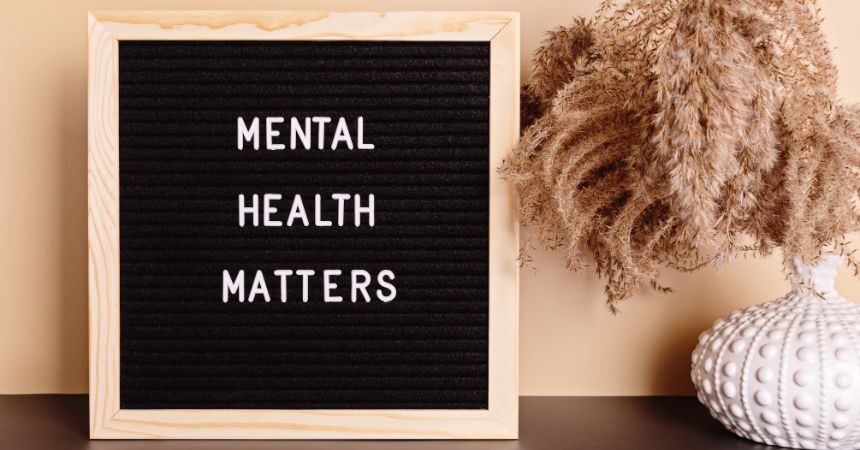When we have high blood pressure, a fever, or a broken leg, most don’t hesitate to go to the doctor. That is often not the case when it comes to mental health. Many people have told me they didn’t think their symptoms were severe enough to get treatment, that they should just be able to figure it out on their own, and/or that seeing a therapist means they are weak.
The truth is, mental health is health. And it’s time we started treating it that way.
While conversations about mental health have become more common, the stigma still lingers. Negative assumptions about people who seek out mental health services is one of the most significant barriers to people accessing the services they need—services that will treat the issues that are making life more difficult and help them feel better.
What is mental health stigma?
Stigma can be subtle, like a joke that minimizes someone’s experience, or more direct, like being labeled “unstable” or “weak” for struggling with anxiety or depression. It can even be internal, where people feel ashamed of their mental health challenges and choose to stay silent.
We also use many of the words used to describe mental health conditions in everyday speech, like,
- “The weather is so bipolar,” when Mother Nature has us experiencing winter one day and summer the next.
- “I’m so OCD,” when someone likes things in order or is very planful and organized.
Using these terms in this way can make people who struggle with these conditions feel invalidated or ashamed.
Mental health stigma isn’t just hurtful, it is harmful by leading people to delay seeking help, isolating themselves, or downplaying symptoms until they become overwhelming. It also makes people feel alone in their struggles.
The truth is that mental health conditions are widespread, yet many still suffer in silence. According to global studies, most people with a mental health condition wait months or even years before reaching out for support, if ever. That silence doesn’t just come from fear of judgment. It often comes from not knowing if it’s okay to ask for help or HOW to ask for help.
Changing the conversation around mental health will help people feel safe and unashamed to ask how they can access services.
What can we do to help?
Now that we know mental health stigma is a serious issue, you may be asking, “Is there anything I can do to help?”
Great question! And yes, there are many things you can do to reduce the stigma.
Reducing stigma isn’t necessarily about grand gestures. The small changes we can make in our everyday lives and interactions can make the biggest impact on those around you.
- Normalize the conversation. Talk about mental health issues the same way you would talk about physical health concerns. Sharing your own experiences or checking in on a friend can help reduce stigma. Small conversations can make a big impact, creating a more accepting and supportive environment for everyone.
- Language matters. Choose your words carefully. Using person-centered language puts the person before the diagnosis. Saying someone “has depression” instead of “is depressed” acknowledges that the person is more than their diagnosis. Avoid using mental health terms casually and be mindful of phrases that can dismiss or belittle someone’s experience. Also, try to avoid using terms like “It can’t be that bad,” or “Can’t you just get over it?”
- Educate yourself and others. Learning about mental health conditions and the realities of living with them can dispel myths and challenge stereotypes. When you encounter misinformation, take the opportunity to provide accurate information and insights, helping to shift perceptions and attitudes. If someone you know is experiencing a mental health condition, try to understand what they are experiencing and find ways to support them.
- Be a safe space. Listen with compassion, not judgment. Reassure people that it’s okay to not be okay and that they’re not alone in their struggles. As my friend Ted Lasso would say, “Be curious, not judgmental.” Encourage open dialogue and continue to include friends who might be struggling in social activities, even if they're not always able to participate.
- Support access to care. Whether it’s advocating for better policies or supporting mental health resources in your community, every effort counts. Help the people in your life access services—sit with them while they make the first call or offer to drive them to their appointments. What is difficult for one person to do alone is made much less intimidating when you have someone to help and support you.
Stigma thrives in silence, but connection and understanding can break it down. If you’re struggling, please know that reaching out for help is not a weakness, it’s a strength. And if you’re supporting someone else, thank you for being part of the change!
Reducing mental health stigma starts with individual actions. By adjusting our language, educating ourselves and others, and providing a supportive environment, we can make significant strides toward a more empathetic and understanding society.
Let’s keep the conversation going and continue to lift the stigma of mental health!


